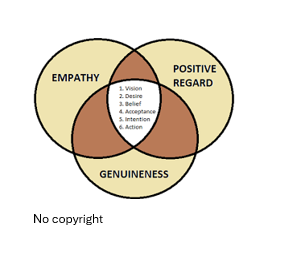Client-Centered Therapy
Client-centered therapy, also known as person-centered therapy, is a humanistic approach to psychotherapy developed by Carl Rogers. It emphasizes creating a safe, non-judgmental space where clients feel genuinely heard and accepted. The therapist takes a supportive, empathetic role—rather than directing or interpreting—allowing clients to lead the conversation. The core belief is that individuals have an innate capacity for growth and self-understanding, and therapy helps unlock that potential through unconditional positive regard, empathic understanding, and genuineness in the therapeutic relationship.


